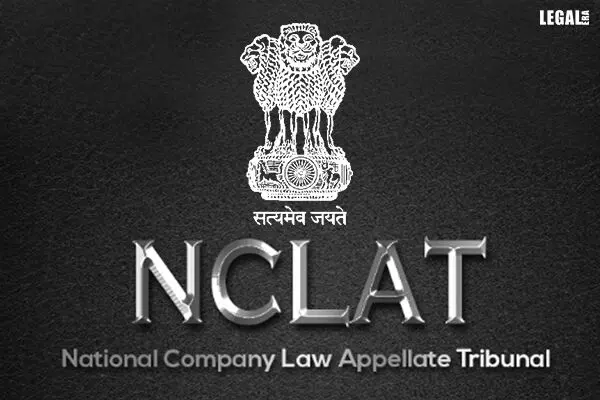- Home
- News
- Articles+
- Aerospace
- Agriculture
- Alternate Dispute Resolution
- Banking and Finance
- Bankruptcy
- Book Review
- Bribery & Corruption
- Commercial Litigation
- Competition Law
- Conference Reports
- Consumer Products
- Contract
- Corporate Governance
- Corporate Law
- Covid-19
- Cryptocurrency
- Cybersecurity
- Data Protection
- Defence
- Digital Economy
- E-commerce
- Employment Law
- Energy and Natural Resources
- Entertainment and Sports Law
- Environmental Law
- FDI
- Food and Beverage
- Health Care
- IBC Diaries
- Insurance Law
- Intellectual Property
- International Law
- Know the Law
- Labour Laws
- Litigation
- Litigation Funding
- Manufacturing
- Mergers & Acquisitions
- NFTs
- Privacy
- Private Equity
- Project Finance
- Real Estate
- Risk and Compliance
- Technology Media and Telecom
- Tributes
- Zoom In
- Take On Board
- In Focus
- Law & Policy and Regulation
- IP & Tech Era
- Viewpoint
- Arbitration & Mediation
- Tax
- Student Corner
- AI
- ESG
- Gaming
- Inclusion & Diversity
- Law Firms
- In-House
- Rankings
- E-Magazine
- Legal Era TV
- Events
- News
- Articles
- Aerospace
- Agriculture
- Alternate Dispute Resolution
- Banking and Finance
- Bankruptcy
- Book Review
- Bribery & Corruption
- Commercial Litigation
- Competition Law
- Conference Reports
- Consumer Products
- Contract
- Corporate Governance
- Corporate Law
- Covid-19
- Cryptocurrency
- Cybersecurity
- Data Protection
- Defence
- Digital Economy
- E-commerce
- Employment Law
- Energy and Natural Resources
- Entertainment and Sports Law
- Environmental Law
- FDI
- Food and Beverage
- Health Care
- IBC Diaries
- Insurance Law
- Intellectual Property
- International Law
- Know the Law
- Labour Laws
- Litigation
- Litigation Funding
- Manufacturing
- Mergers & Acquisitions
- NFTs
- Privacy
- Private Equity
- Project Finance
- Real Estate
- Risk and Compliance
- Technology Media and Telecom
- Tributes
- Zoom In
- Take On Board
- In Focus
- Law & Policy and Regulation
- IP & Tech Era
- Viewpoint
- Arbitration & Mediation
- Tax
- Student Corner
- AI
- ESG
- Gaming
- Inclusion & Diversity
- Law Firms
- In-House
- Rankings
- E-Magazine
- Legal Era TV
- Events
NCLAT Delhi: Hypothecating Trademark for Higher Amount and Assigning It for a Lower Amount Cannot Be the Sole Criterion to Label It an 'Undervalued Transaction'

NCLAT Delhi: Hypothecating Trademark for Higher Amount and Assigning It for a Lower Amount Cannot Be the Sole Criterion to Label It an 'Undervalued Transaction'
The National Company Law Appellate Tribunal ('NCLAT') bench, comprising Justice Rakesh Kumar Jain (Judicial Member) and Naresh Salecha (Technical Member), has ruled that merely considering a trademark's higher hypothecation value and its subsequent assignment for a lower amount should not be the sole basis for categorizing it as an undervalued transaction.
While the resolution plan submitted by the Respondent No. 2 Gloster Limited for the Corporate Debtor Fort Gloster Industries Ltd. was pending approval, the Appellant Gloster Cables Ltd. filed an application with the NCLT Kolkata.
The appellant sought an order to exclude rights in the trademark Gloster from the assets of the corporate debtor if any resolution plan is approved. This exclusion also entailed removing the trademark Gloster from the corporate name of the corporate debtor, considering that the trademark Gloster is not an asset of the corporate debtor.
Additionally, it requested an order clarifying that the approval of the Corporate Insolvency Resolution Process (CIRP) does not imply any authorization or right for the corporate debtor to continue using the trademark Gloster as part of the corporate debtor's corporate name.
NCLAT granted the application, asserting that merely hypothecating the trademark for a higher amount, followed by its assignment for a lower amount, does not singularly qualify as an undervalued transaction.
The Appellate Tribunal observed that the appellant obtained ownership of the trademark through the supplemental trademark agreement executed on July 15, 2008. This agreement stipulated that the corporate debtor would transfer the registered trademark to the appellant upon the condition that the order issued by the Board of Industrial and Financial Reconstruction on September 10, 2001, be either vacated or discharged.
Regarding the assignment of the corporate debtor's trademark in the context of the undervalued transaction, the Appellate Tribunal relied on the contrasting language used by the Legislature in Sections 43 and 45 of the IBC. NCLAT noted that according to Section 43 of the IBC, the resolution professional (RP) or liquidator is required to form an opinion, whereas in Section 45, the RP or liquidator must examine and then determine whether the transaction in question was undervalued during the relevant period.
NCLAT cited the Supreme Court decision in Anuj Jain Interim Resolution Professional for Jaypee Infratech limited v. Axis Bank Limited. , where it was emphasized that specific material facts must be pleaded if a transaction is to be brought under the provisions addressed by Sections 45/46/47 or Section 66 of the IBC. Furthermore, it was noted that RP is expected to consider such requirements while making a motion to NCLT. However, action under Sections 43 and 45 could not have been taken without an application being moved by the RP.
NCLAT observed that the CoC had been informed that the forensic audit report found no instances of preferential, undervalued, fraudulent, or wrongful trading transactions. Furthermore, the report did not uncover any preferential or fraudulent transactions involving related parties. In light of these findings, NCLAT concluded that the mere fact that the trademark was hypothecated for a higher amount and subsequently assigned for a lower amount would not be the sole criterion for considering it an undervalued transaction.
In conclusion, NCLAT overturned the opinion of NCLT Kolkata, deeming it not in accordance with the law.



